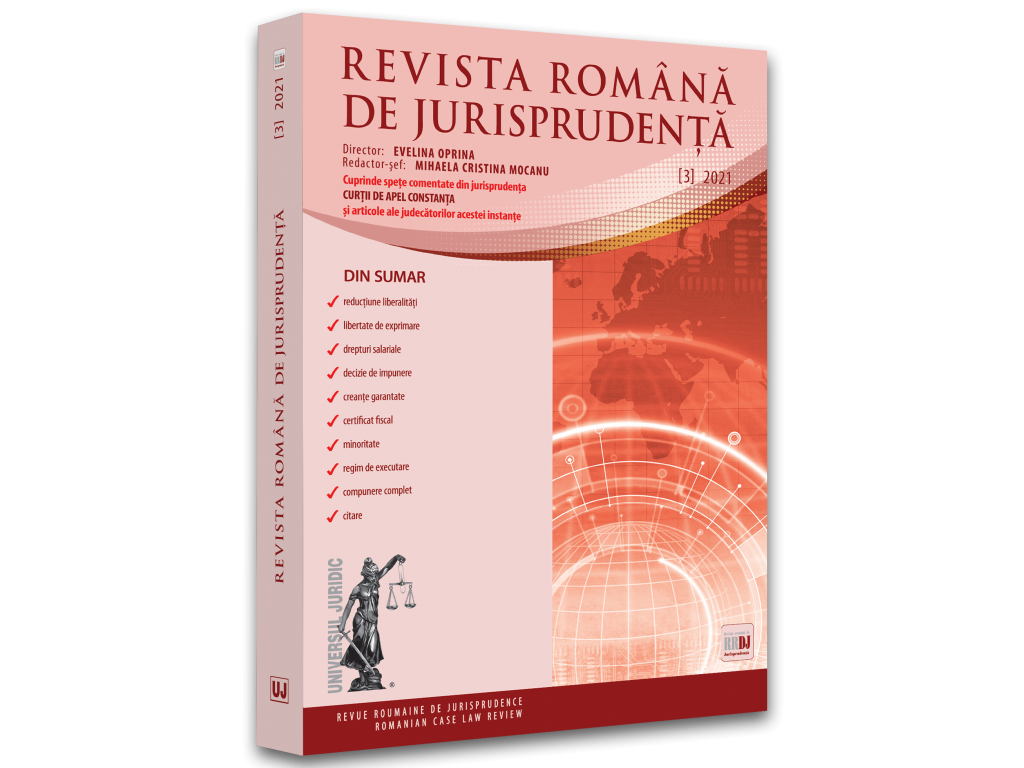The effects of the court decision to stay enforcement against one of the joint debtors. Mechanism of application, according to Articles 1.052-1.053 of the Civil Code of 1864, of the relationship of joint and several liability that exists between joint and
DREPT CIVIL ŞI DREPT PROCESUAL CIVIL
Abstract
The alleged damage was acknowledged to the creditor on the basis of criminal court judgments by which the defendants (the parties in this case) were jointly and severally liable to pay a sum of money by way of civil damages to the civil party.
The main effect of passive liability consist in the obligation of each co-debtor to pay the debt in full, and the immediate consequence of this effect is that each individual debtor can be sued by the creditor for the totality of the debt (performance) which is the object of the obligation. As provided for in Article 1042 of the Civil Code 1864, the creditor has the right to pursue the debtor of his choice in order to obtain payment of the entire debt.
It is therefore irrelevant that enforcement has remained ineffective against one of the debtors; the pursuit of one of the co-debtors does not preclude the pursuit of the other co-debtors jointly and severally, since each of the co-debtors jointly and severally is liable to the creditor as if it were a single debtor, on the one hand, and in their relations to the creditor they are liable to each other and to all of them for the entire debt, on the other.
The effects of a court judgment irrevocably declaring that enforcement against one of the joint and several co-debtors is time-barred and the creditor's right to seek enforcement against him is time-barred are only between the creditor and the debtor, but this has no influence on the relationship of joint and several liability existing between the joint and several co-debtors.
Pursuant to Article 1053 of the Civil Code of 1864, the subrogated plaintiff, being a joint and several co-debtor who has paid the entire debt, and therefore in excess of his share, is entitled to claim his share from the other joint and several co-debtor.








